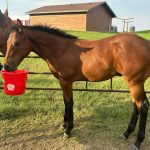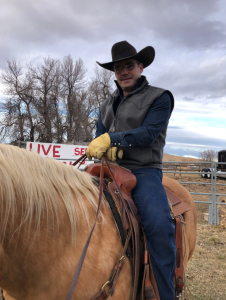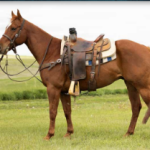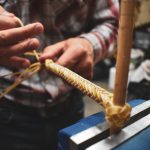State denies charges in North Dakota Beef Commission suit
The state of North Dakota’s response to the beef commission lawsuit surprised the plaintiffs’ attorney.
The government attorneys assigned to represent the North Dakota Beef Commission, the office of the Governor and the office of the Attorney General denied all allegations.
The lawsuit alleges that the makeup of the North Dakota Beef Commission is unconstitutional because it favors members of the trade organizations over those who aren’t members. It also alleges that the state is violating the constitution by prohibiting ranchers from serving on the NDBC if they have requested a refund within the past three years.
Robby Dube, representing the Ranchers’ Rights Initiative, the newly formed organization of ranchers that says it is “fighting to protect the rights and legacy of hardworking ranchers across North Dakota” and which filed the lawsuit, said that the government’s response is a rare one. “I can count on one hand in dozens and dozens of cases the times the government has answered and not brought a motion to dismiss,” he said.
Dube said the common response, a “motion to dismiss” would indicate that the defendants are essentially saying “you don’t have a case.”
However, since the defendants didn’t file a “motion to dismiss,” Dube believes this is an indication that they did not believe they could prevail on that kind of a motion.
Dube said the defendants’ denial of any wrongdoing is a normal response to litigation.
Makeup of commission:
Per state law, the North Dakota Beef Commission is composed of 4 members of the North Dakota Stockmen’s Association, one member of a Milk Producers Association, one member from the Livestock Marketing Association and three at large members.
The state law says that, other than the livestock market representative, each member must be
a participating producer meaning he or she has not obtained a refund for the preceding three years.
State law also says members, including the livestock market representatives, must also be actively engaged and have been actively engaged in that phase of the industry for at least five years. Per North Dakota law, “actively engaged” means:
(1) Has an ownership interest in an operation that is of sufficient scope and significance as to constitute a distinct activity; and
(2) Has and regularly exercises direct control of the operation.
TSLN has in the past asked the ND Legislative Council and the Attorney General to define that language, but both offices have declined to do so. The governor’s office has also neglected, after several requests from TSLN, to explain how it determines whether the at large candidates meet this criteria.
Refund
Although the $1 per head state beef checkoff is refundable, the federal $1 per head checkoff is not refundable. All cattle owners who sell cattle pay both checkoffs, and can request a refund of the state checkoff but not the federal one. The North Dakota Beef Commission handles both the state and federal funds. It forwards half of the federal funds to the national organization (the Cattlemen’s Beef Board) and retains the other half of the federal funds to be spent by the NDBC for promotion, education and research of beef. All cattle owners, even those who obtain a refund of their state checkoff funds, contribute to the NDBC budget through the federal checkoff. The producers who are prohibited from serving on the NDBC due to refund requests are also denied the ability to serve on the national Federation of State Beef Councils because that board is made up entirely of representatives from state beef councils and commissions.
Legislator responses
Randy Lemm, District 20 Senator from Hillsboro, who serves on the Senate Agriculture Committee urged his fellow senators to vote against a bill on the Senate floor that would have established an election process for the NDBC. Lemms is a cattle owner, but the majority of his income is from farming.
He criticized the bill to his fellow senators, saying that the districts weren’t drawn evenly and that the bill described a representative as someone who “is or has been a beef producer, cattle producer, dairy producer or representative of a livestock market.” Lemm posed the question “how long is the ‘has been’ period?”
In an interview with TSLN, Lemm said that he is disappointed to hear of the lawsuit. “The main goal of the checkoff is to promote beef and it will take a bunch of money that could be going to promotion to defend the North Dakota Beef Commission,” he said.
“I think everyone has an equal chance of getting on (the commission),” he said. “They keep saying that Stockmen’s has so many members, but there are plenty of people that are not Stockmen’s members that have been on the commission,” he said.
Lemms said that producers who criticize the checkoff should not expect to be named to the commission.
“When some of these guys are so vocally opposed to the checkoff with the process we have in place, if you are going to be vocal against it, you are kind of shooting yourself in the foot if you want to get a seat on the commission,” he said.
“As far as getting appointed to the commission, if you are being vocal against the checkoff, that is a strike against you when you are vetted,” he said.
Lemm doesn’t have concerns about the provision in the law that prohibits refund-seekers from serving on the board. “If I were appointing people to a commission, and there are people vocal against the checkoff, and when they request a refund of their checkoff, I would take that into consideration as to whether I would appoint them. If you want to be a part of it, you have to ‘pay dues’ (aka: pay the state checkoff) and if you don’t believe in what the checkoff is doing for you and you are requesting a refund, I don’t think that’s proper,” he said.
Lemm said producers who are not appointed to the commission can “still talk to the people on the commission and voice their concerns.”
“How can those people have their voice heard? They can talk to the commissioners. That’s about all they can do. I see some of the problems with the appointment process, I do see that. I just feel like there is going to be a lot of dollars spent on this thing that should be going to promoting beef. An election process isn’t free either,” he said.
SuAnn Olson, District 8 representative from Baldwin supported the house version of the bill during this spring legislative session.
Olson, a CPA, grew up on a dairy farm. Her husband had beef cattle in the past.
“I supported the bill. You shouldn’t have to belong to a specific organization to be able to be a part of the process for choosing someone to represent your industry,” she told TSLN. Olson said she and the other legislators who voted for the 2025 bill “tried to address what seemed to be a real inequity.”
“That really does seem to be what’s happening.” She said that another problem with the appointment process is that the governor sometimes left seats vacant for months before naming a commissioner to fill the opening.
“Why can’t producers or interested parties in that industry choose their own representatives? It always seemed odd to me that it was left to the governor,” she said.
Olson is curious to see how the lawsuit shakes out. “The makeup of the board itself is something that needs to be changed in my view. We’ll see how the court finds on it,” she said.
The government-appointed attorneys representing the state did not respond to interview requests.





